
Clique aqui para Português
In November 2023, Razia Khanom, Vice-President of the London Community Land Trust, visited Rio de Janeiro for the Favela CLT Project‘s* 5th Anniversary and 3rd National Seminar. The event focused on collective ownership of land and community spaces as offering resistance to real estate speculation and gentrification, while residents maintain ownership of their homes, ensuring security of tenure. In celebration of World CLT Day 2024, we are thrilled to share this evocative, deep-dive interview with Razia Khanom.
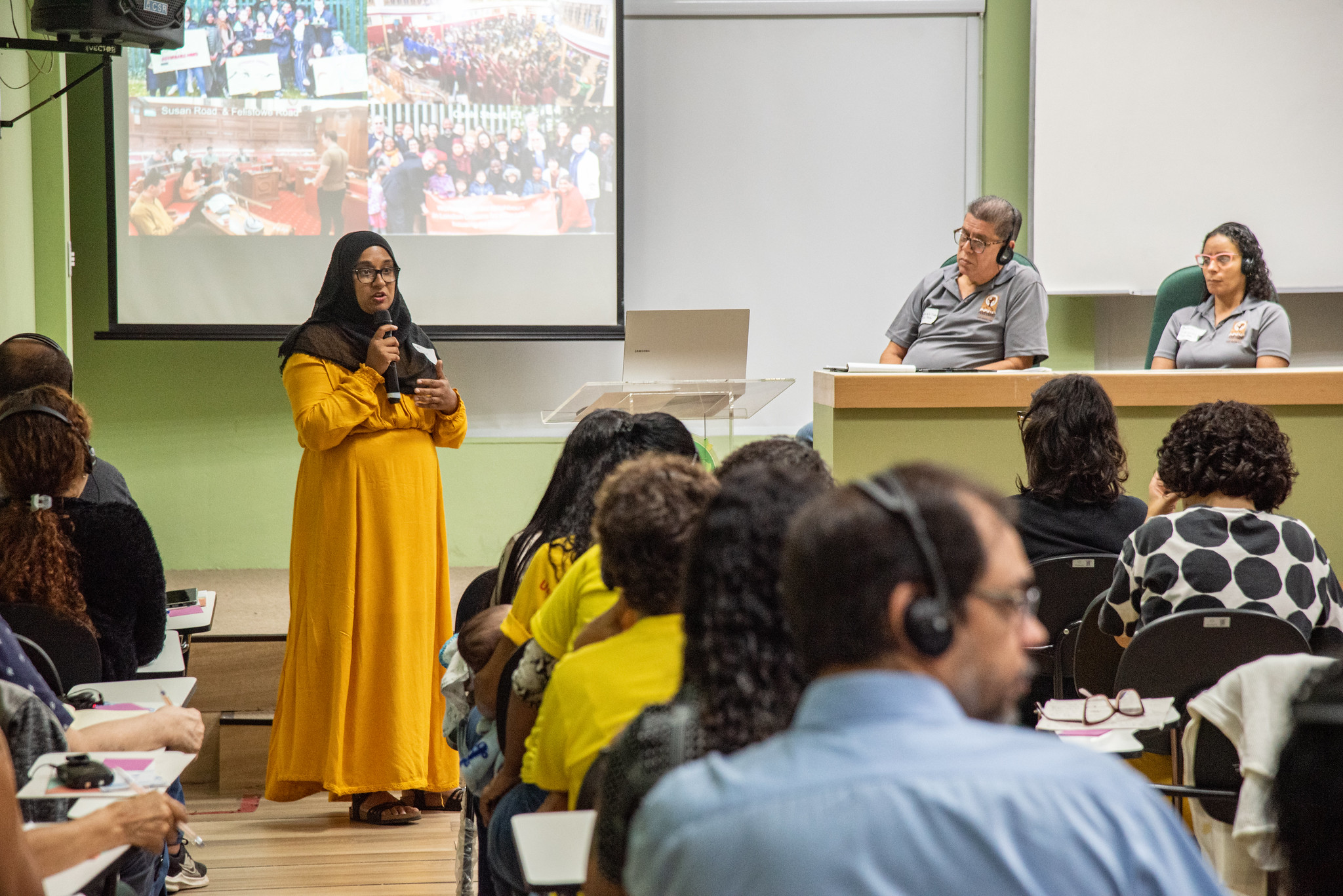
Khanom is an animated storyteller. She brought this skill to her participation at the event, weaving together her know-how as a CLT leader in the UK, her Bangladeshi heritage, and her support for housing justice in Rio. The next day, RioOnWatch had an opportunity to interview Khanom over a spread of local fruit and pastries. She spoke about how her personal experiences of housing precarity have molded her commitment to CLT organizing. She also expressed solidarity with Rio’s favelas and shared insights into how their treatment is tied to the wider world and Brazil loses out in not embracing and recognizing them.

RioOnWatch: How did your fight to find affordable housing in London begin, and how do you see the importance of staying in your community?
Khanom: We were living in overcrowded conditions and we had been considering over the last year or so what to do with ourselves to come out of [this situation]… We went from a two-income household to a one-income household. Salaries were not increasing. We considered just leaving London. We live in Brixton, southwest London.
We’ve got a really strong friend network. It’s a really diverse community. The school that my child attends is a state-funded primary school with an Islamic ethos. It allows her to continue the values that she learns at home, rather than have the identity crisis that I did as a child. I wanted to ensure that my children were firm in their identity before the world started attacking them for it.
We would’ve lost that element as well. A lot of the families attending that school are first-generation immigrants too. Many of them don’t have extended family. Even though I have family in the UK, they became a secondary family. To leave that behind was going to be quite difficult. So this was the solution for me.
I used to work for housing. Just before I had my first child, I was working in a housing association and we did some research as to who is likely to fall into insecure housing. We found in our area, it was single Black mothers between the ages of about 25 and 36. That’s a big portion of our community. Something needed to be done to support them.

RioOnWatch: Can you talk about how you first got into CLT organizing?
Khanom: In 2018, I saw a little leaflet posted onto our noticeboard inviting local residents to a meeting to discuss affordable homes.
At that time, I was a stay-at-home mother. My youngest was about four years old… Before this, my eldest was presenting some health problems. She was having what we now know were multiple seizures a day. It came to a grinding halt when the baby was in my hands and I could see [my older daughter] at the top of the stairs and she was swaying. And if I didn’t reach [her in time], she would fall down the stairs. I told the doctor, “I can’t do this anymore, I’m really struggling, I can’t keep her safe.”
So we moved back to the flat we were living in prior. It was quite useful, just one floor, there were no steps, and we didn’t have to worry about enough space. Then, as time went by, we realized that we were stuck… because rents had increased so exponentially. This was after about five years of privately renting. Each year, we had to move because the landlords would increase our rent so exponentially that we couldn’t afford them. We were having to move further and further out. The conditions on the properties were really poor and there was little we could do about it.
At this point, I saw this notice for affordable homes: “Do you know what affordable homes look like?” In Brixton, all these fancy buildings are coming in. The whole area’s being gentrified. It’s affordable only for people who are already very comfortable.
When the CLT [organizers] came along and I could see how this is a huge element of the solution to social housing, it almost became a moral obligation for me to be involved, to share my story so that others who might be feeling isolated like me have some form of comfort that they’re not alone. Like somehow, maybe, if we got together and we delivered these homes, we could prevent [displacement] from happening. At the first meeting, I met two young men who… work closely with our national organizing group, Citizens UK, [which] put them in touch with our East London CLT. At that time, the East London CLT was supposed to deliver their first CLT home.
[Meanwhile,] London CLT put a bid in but the local authority, the Greater London Authority (GLA), didn’t feel comfortable giving such a large site to a fledgling CLT. But they were so impressed with the pitch, they said our proposal was the best. Some of it was going to be affordable rents, some of it was being privately sold, and some of it was for social rent, but they wanted to assign 23 units for us to deliver CLTs.
[That’s when] Citizens UK, the advocacy committee, got in touch with East London CLT because rather than creating a whole new land trust, it’s about investing in institutions that we’ve got. East London CLT then became London CLT.
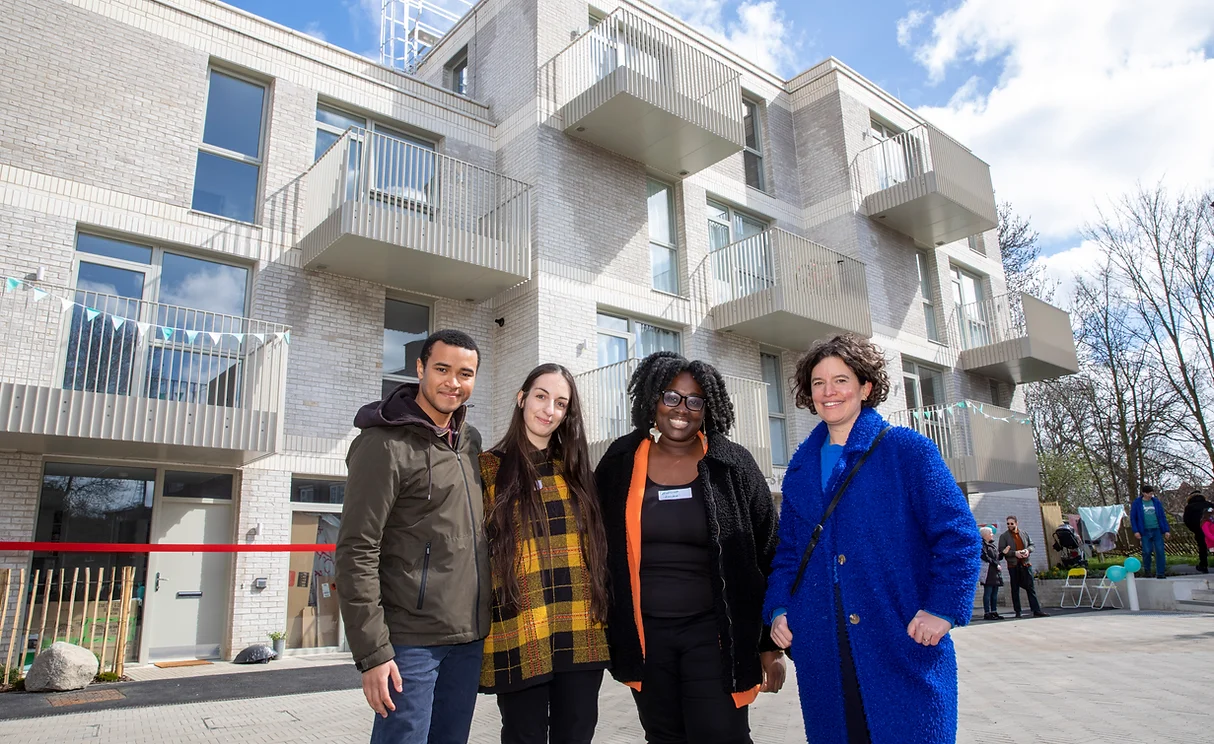
RioOnWatch: How was your experience trying to create affordable housing through the London CLT?
Khanom: In 2019, I joined the London CLT board. The project had started in 2018, but had taken so long. It was a low priority for the Greater London Authority in terms of funding applications. We lost some community steering members because they were priced out. They had to move out. It became even more incumbent upon us to push it through. We had a series of very difficult meetings. Because we’re a small CLT, we found that there were expectations on us that were not on other developers. The model hasn’t been widely used yet, so there was a lot of uncertainty around it.
There was what I would consider a lack of respect for what we were trying to do… Our project was almost at risk when England decided on Brexit. Before that, Europe funded some of our housing projects… We put in an application for funding before the official exit date. Because the GLA took so long, they didn’t even attend one of the panel meetings that they organized themselves. It went past the deadline and then eventually they came back and said, “We don’t have that insurance anymore. We will give you this funding, but if you don’t get beyond planning, then you have to repay that money.” That’s £530,000! Where were we going to get that money from? [If this happened] it was going to make us bankrupt.
All the chairs of our various steering groups for all the projects from London CLT called for a meeting with our Key Partners, so they could speak to those committees himself and tell them why he would be unable to bring their projects forward… Then much to our delight, about an hour before we attended the meeting, we got a letter saying, “We’ll make an allowance for you. You don’t have to pay the money back if it’s just a plan.”
It really highlighted the power that we had, from the different testimonies.
At the end of it all, they didn’t want to attend the meeting, because they thought it was going to be unproductive. They thought we were just attending to tell them that they’d let us down. When actually, what we were looking for was to find out what the key issues were within their organization. Was there anything we could do to help, and how do you make decisions so we can work around that too? Let’s work together! Because we can’t make it work without your funding and you can’t deliver on this housing alone. You’ve got a big pot of money to spend, you don’t have the staff to distribute the funds, but we’re here to help you do that.
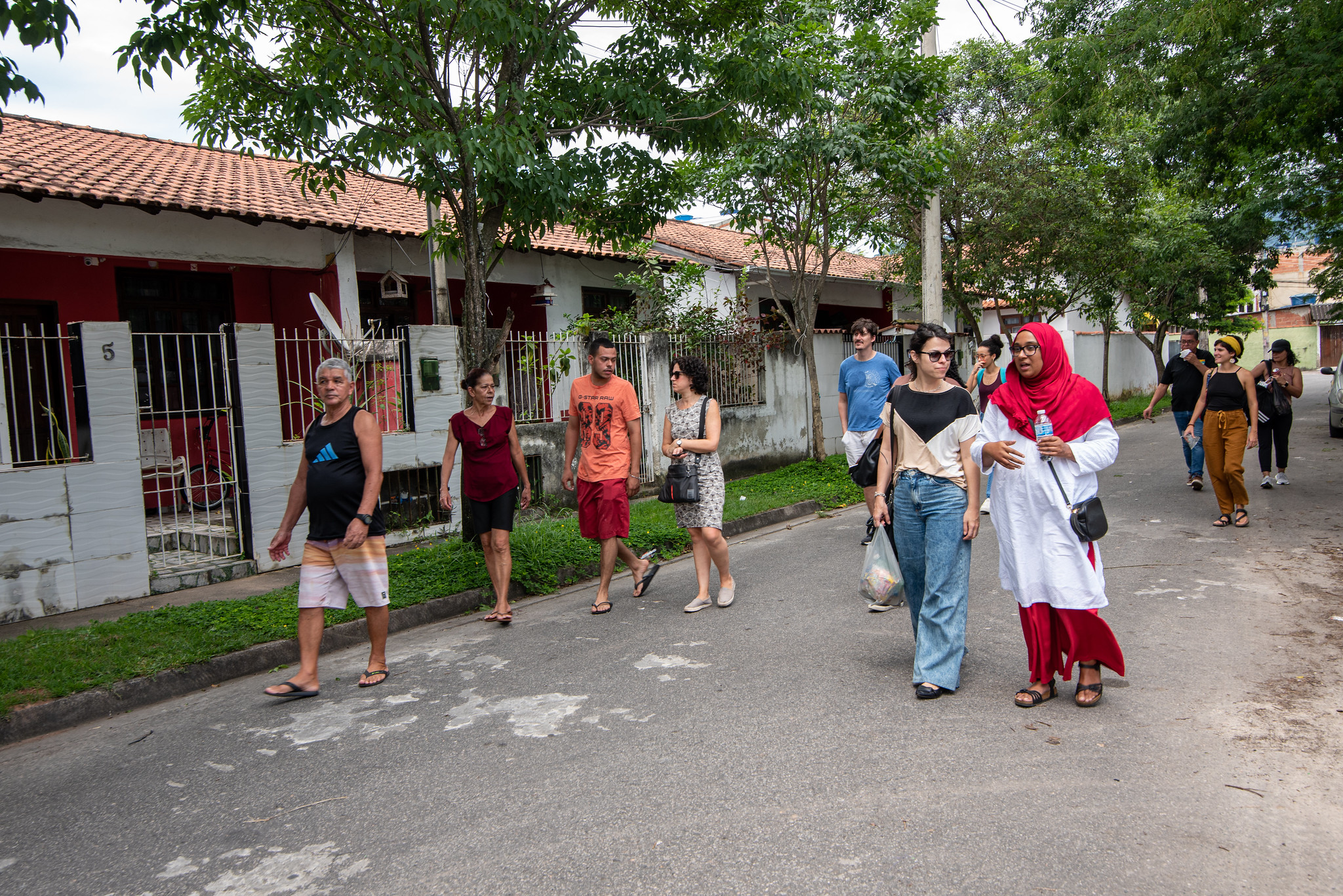
RioOnWatch: What does your organizing look like day-to-day?
Khanom: I meet with people in my community who are struggling with housing, with people who are involved in other steering groups and other chapters of our organizing body. That makes me realize that housing is such a pressing issue right now. We’ve had a housing crisis for decades, but recent changes—economic downturn, austerity, change in government, recession, we almost had a double-dip recession, and inflation—all impact it. It comes down to how much disposable income people have, their employment opportunities. It’s all interlinked.
I work in my daughter’s school. The CLT model will not be for all of them there, because some are on such low income that they actually need social housing, not affordable housing. They wouldn’t afford to live in affordable houses.
The local authority has no idea that they need this help… The reason I’m telling you all of this is because almost on a weekly basis, I meet with individuals, I see individuals who are struggling, both in the private sector and those on the waiting list for public housing. Every time I think I’m getting really tired and feel like I’m not getting anywhere, and I think I’m going to pack it in now, I meet people like that… and their stories keep me going. Day to day organizing always begins with one to one connections to all those who have a stake in their communities.
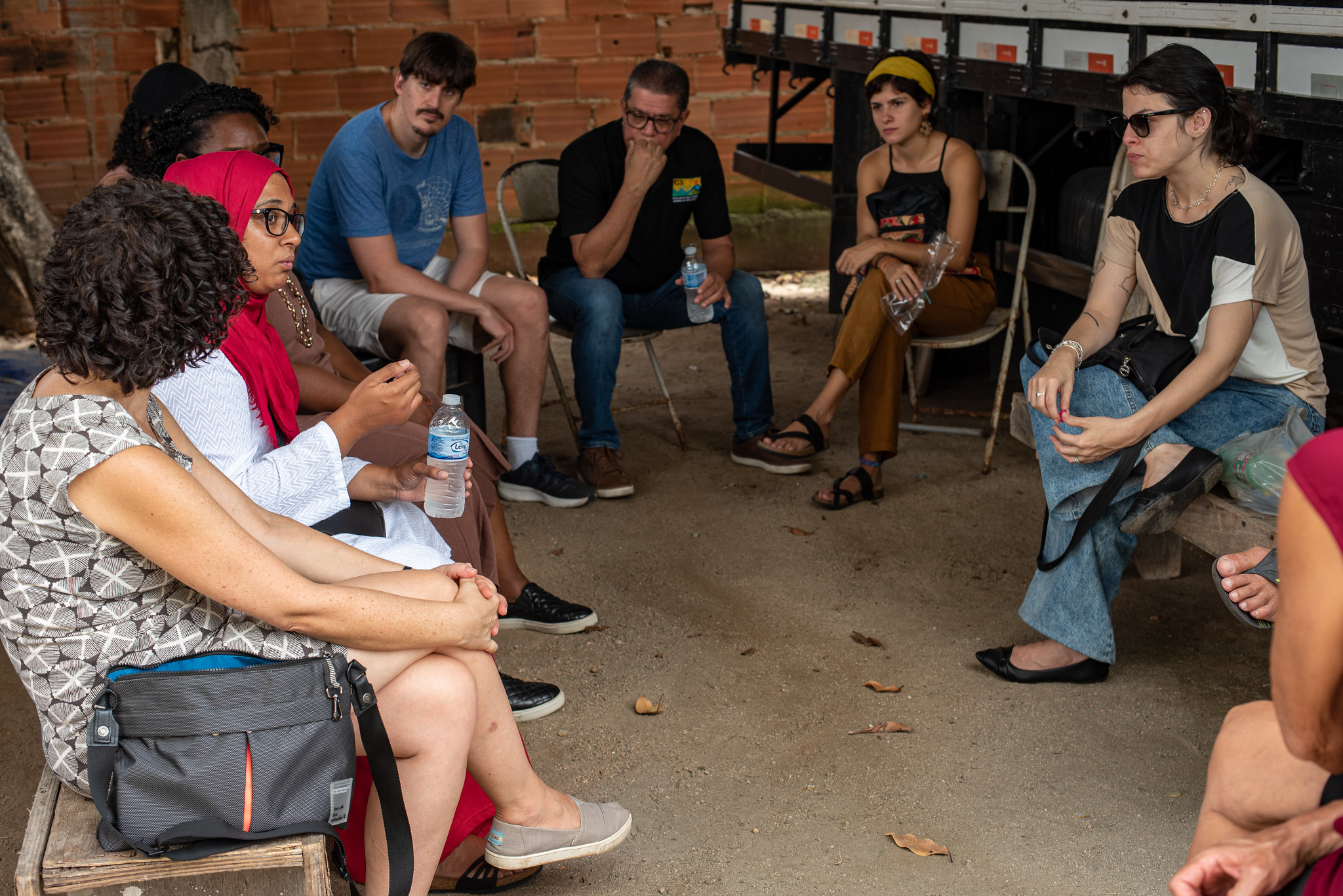
RioOnWatch: Can you tell me about the CLT project that you’re now working on in your borough?
Khanom: For Christchurch Road, Lambeth, the original timeline was that people would start moving in 2021. We’re now in 2024. The project was delayed through no fault of our own, so we requested a further £120,000. They asked us to demonstrate that there’s local support for it, even though we’ve done this many, many times before. They wanted to know if there was any political support. Now, if the local communities are asking for it and there’s a housing shortage, I’m not sure what political support for it would mean.
The local leader effectively said that the Planning Department will not give planning permission at this site, because the site has tree protection orders. It’s a green space and we can’t build on green space, even though the last time that land was used, it was for housing. Because of that, our grant was declined.
I’m looking for other ways to apply for funding, so we can take that project forward and our local people can stay there. It will set a precedent that we will not be bullied or pushed aside.
Our initial proposal was a mixed dwelling site, so we wanted to make sure the ground floor was accessible for those with disabilities, the elderly who wanted to stay in the community. The building that I live in has quite a large aging resident population. We wanted to make sure that they could stay. Then, we started building up two-bedrooms and three-bedrooms for families.
One of the first objections that came back said we don’t need family units in Lambeth. They’re basing that on falling roll numbers in schools. But this is where the absurdit comes in. As families don’t have adequate housing, don’t have affordable housing, they are moving out. It’s not that we don’t need family housing, we need it: they are being pushed out.
It’s really difficult to get into a conversation with the local authority because they’re really closed off. They make all of these pledges when they want to be voted in, but when it comes to delivering on these, for whatever reason, they don’t want to or they can’t. The bottom line as to why I keep going is because I think housing is a basic right for everybody. I think it’s a great injustice that in Britain we haven’t had adequate housing since the 1980s.
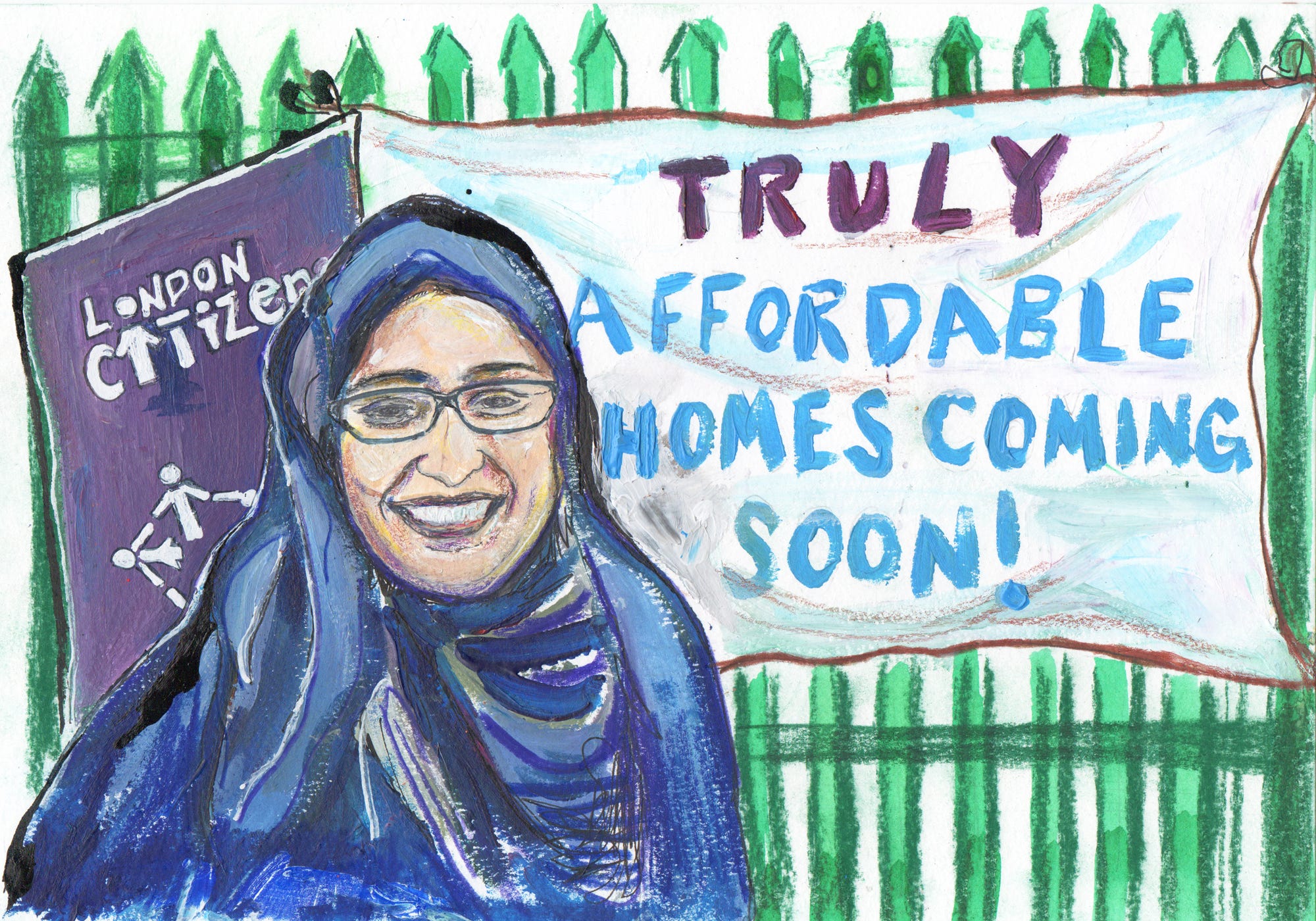
RioOnWatch: You mentioned learning about parallels between life in Rio’s favelas and occupied Palestine when you visited Morro da Providência. Can you speak more about that?
Khanom: The Brazilian police uses—our Providência favela tour guide made us aware of this—Israeli weapons when they reach, shall we say, their useful end [outdated for use in Israel]… This is something that I learned when I went over to Providência.
People living in favelas have also been subject to unfair, dishonest policies. They have needs that are not being met… [but] they’re still making the best of a really bad situation. I’ve seen so much ingenuity in the favelas. Everywhere I looked, I saw a home. I looked down the alleyway, another home. I looked down that way, another home. They’ve responded to a need in the most creative of ways.
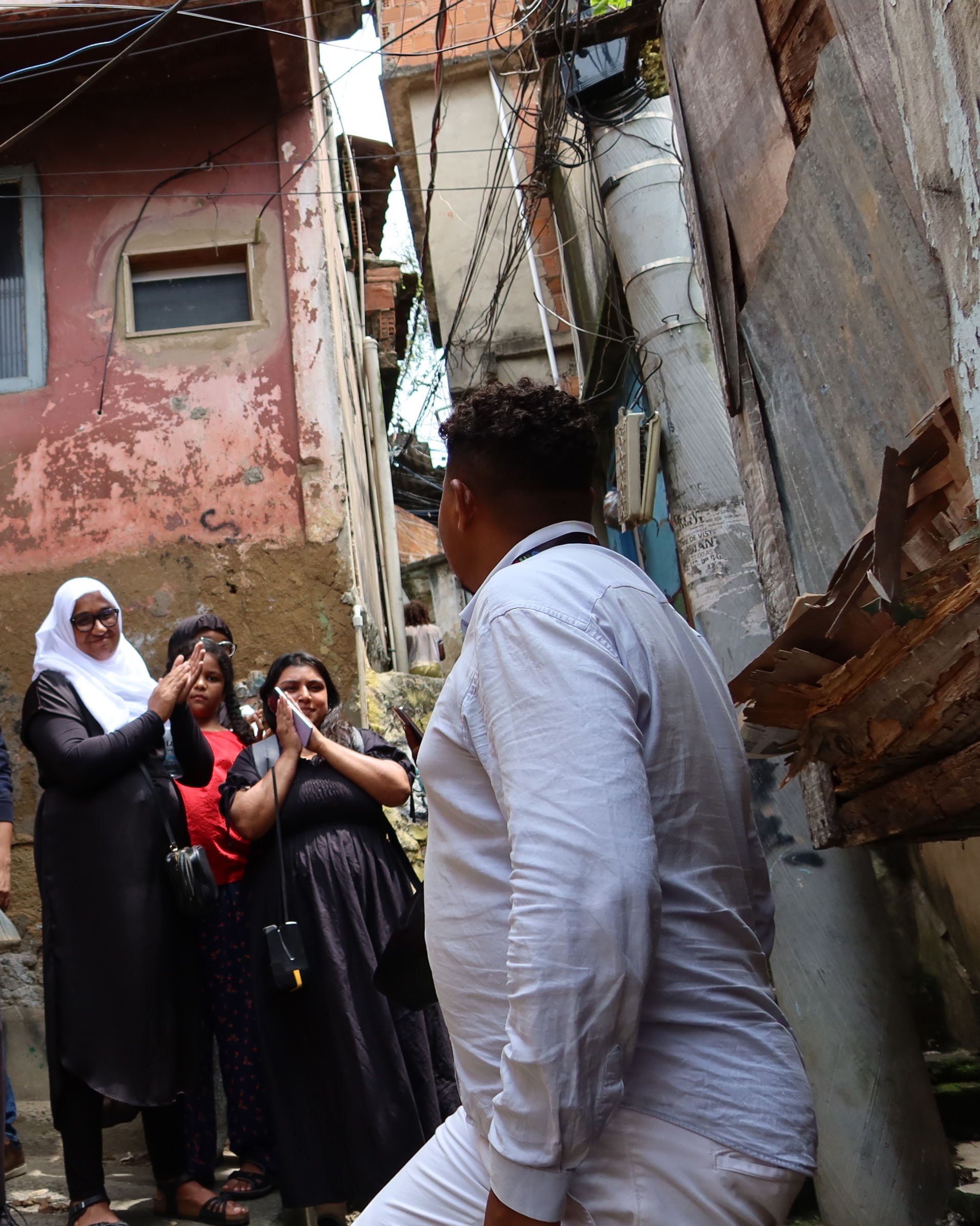
“These people [in Brazil’s favelas] have such an amazing spirit. They have such a strong will. It will only benefit the country to provide the space to see what they can actually achieve.”
There were things that favela residents are doing which we’ve lost a lot of in London. For example, that sense of community… My aspiration now is to replicate as much as possible in our own way that community spirit that I’ve seen in the favelas—that resilient passion, moving forward.

RioOnWatch: As we close, can you tell me a little bit about how your trip to Rio has been, and the potential for forging international solidarity between CLTs?
Khanom: I was really excited to come out and meet the teams. I had no idea what it would look like. I thought there might be a few tours here and there, but it has been so much more than what I envisaged.
When Cosme was sharing, it brought my mind straight back to the front. We have a collective hardship. We have a collective grief, a shared grief, and so much of the culture in favelas is quite reminiscent of Bangladesh, and what our communities had to endure when they came to the UK in order to stay safe. The Bangladeshi community were being killed in East London just for being brown, wanting adequate housing, equal employment and salaries.
Quite often, there’s an idea that cheap homes are going to be poor quality, and if they’re poor quality, they will be poorly kept, because people who are low income don’t know how to, what, be civilized? When I saw those homes in Grupo Esperanca, they were beautiful, they were so well kept. People were so proud. When you give people that sense of ownership, that sense of belonging, that control, you see them flourish. I feel so privileged to have not only been invited here to see Providência but also what their homes look like. I’ve got pictures, and I’ve already shared them with people back in our community steering group to show them what just £7,200 can achieve.

Today, we saw those little plums in the trees which I loved. The residents are so giving and rushed at the opportunity to share what they had, to share a piece of their joy, and the sustainability. My goodness! They’ve thought of all the things that the community might need. Everybody knows each other. There’s a bond. There’s also security in that watching out for each other. There’s an element of custodianship, if somebody’s unwell, if they’re aging, if somebody’s pregnant, there’s a sense of responsibility or a duty towards each other. I’m thinking of various ways that the community spirit of favelas and the way the residents organize can be implemented in the UK.
What I would like to see is more global collaboration. Much can be achieved when people come together and are allowed that space to do what it is that they want to do. That’s what [this visit to] Rio has had me thinking. There’s strength in numbers.

*The Favela CLT Project and RioOnWatch are both initiatives managed by Catalytic Communities (CatComm).
